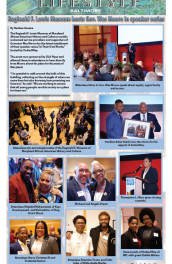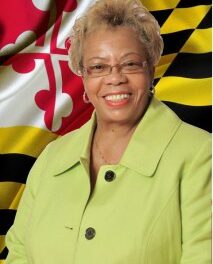By BlackEngineers.com
On Jan. 20, 2025, the White House issued an executive order dismantling diversity, equity and inclusion (DEI) programs across the federal government.
This directive represents a dramatic departure from previous policies and raises critical questions about its impact on federal recruiting and engagement with underrepresented communities.

A new policy direction
The executive order aims to terminate all DEI-related programs, policies and mandates within federal agencies. It seeks to prioritize merit, individual performance and efficiency while eliminating what the administration calls “illegal and immoral discrimination programs.” The directive emphasizes equal treatment for all, claiming that DEI initiatives have created inefficiencies and fostered favoritism.
Key provisions of the order include:
- Ending DEI Programs: Federal agencies must terminate DEI-related offices, positions (such as chief diversity officers) and initiatives, including “environmental justice” efforts.
- Revising Employment Practices: Federal hiring, training and evaluations will focus on individual merit rather than diversity-focused goals.
- Transparency and Accountability: Agencies are required to report on the costs, prevalence and operational impacts of DEI programs implemented since January 2021.
- Oversight: Monthly progress reports and high-level meetings will monitor compliance and assess potential additional actions.
The rollback’s broader implications
While the administration frames this order as a move toward fairness and efficiency, its wide scope raises concerns about the rollback of federal recruiting and outreach efforts traditionally aligned with diversity initiatives.
- Recruiting at HBCUs and Minority Events: For decades, the federal government has actively engaged with minority-serving institutions, such as Historically Black Colleges and Universities (HBCUs), Hispanic-serving Institutions (HSIs), Asian American and Native American Pacific Islander Serving Institutions (AANAPISIs), minority-focused professional organizations and career fairs to recruit talent. These partnerships have been crucial in expanding opportunities for underrepresented groups. The order’s directive to eliminate DEI-related activities has raised fears that such initiatives may be scaled back or discontinued altogether.
- Engagement with Community Organizations: Federal agencies have leveraged partnerships with minority-focused media, fraternities, sororities and churches to reach underrepresented communities. Critics worry that these collaborations, often linked to DEI objectives, could be jeopardized under the new policy.
- Impact on Recruitment Pipelines: Programs designed to build diverse talent pipelines—such as internships and fellowships targeting underrepresented groups—may face significant changes. With DEI programs under scrutiny, these pathways could be deprioritized, raising concerns about long-term representation in federal roles.
Support and criticism
Supporters of the executive order argue that it restores fairness by eliminating what they see as discriminatory practices in federal operations.
They claim that focusing on merit and efficiency will ensure taxpayer dollars are used responsibly and that all Americans are treated equally.
Opponents, however, see this as a setback for equity and inclusion. Advocacy groups fear the dismantling of DEI programs will disproportionately harm marginalized communities, reducing representation and opportunities in federal spaces.
Critics also warn that rolling back outreach to minority-serving institutions and minority organizations could weaken the government’s ability to attract top talent from diverse backgrounds.
A National conversation on equity
This policy shift has sparked a larger debate about the role of DEI in governance, workplaces and education. Proponents of diversity initiatives argue that they are essential for addressing systemic inequities, while critics claim they foster division and inefficiency.
The administration has yet to clarify the extent to which this order will affect federal recruiting and engagement with minority-focused organizations. As federal agencies implement the new directive, the broader impact on workforce diversity, community partnerships and government representation will come into sharper focus.
Looking ahead
The coming months will reveal how this executive order reshapes the federal government’s approach to equity and inclusion. For now, it signals a significant shift in priorities, with implications for how the federal government recruits, retains and engages with the American public.
The post What the new executive order means for diversity and federal engagement appeared first on AFRO American Newspapers.











